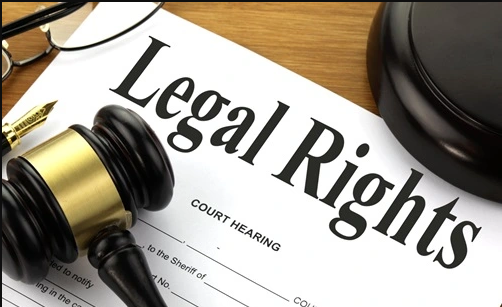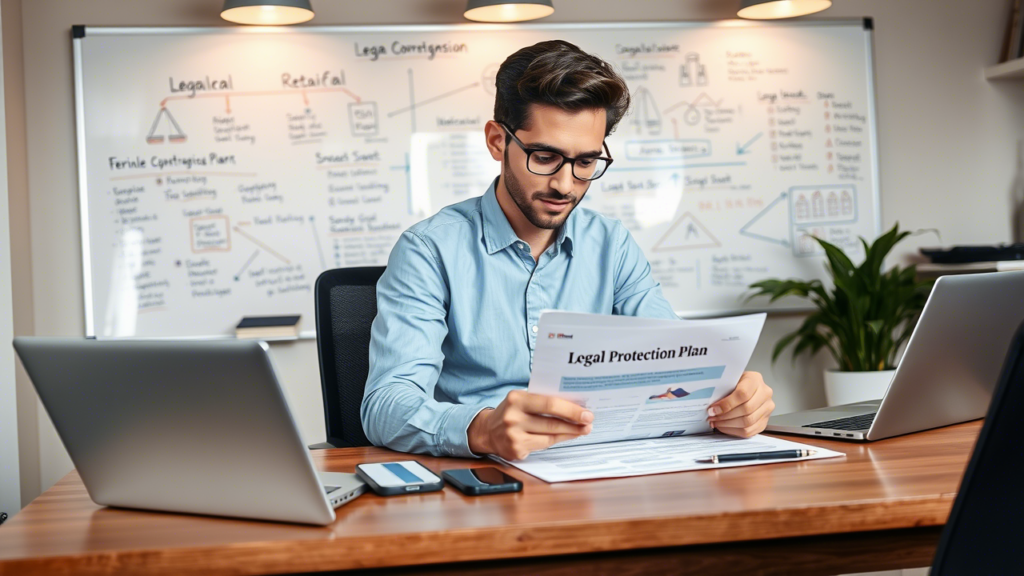Legal Basics Everyone Should Know: Protecting Yourself in Everyday Situations
Legal matters are not just for lawyers or courtrooms—they touch every part of our daily lives. From signing a lease or making a purchase, to dealing with workplace issues or posting on social media, we’re constantly involved in situations that have legal implications. Unfortunately, most people don’t realize their rights—or responsibilities—until something goes wrong.
This article will walk you through essential legal basics every individual should know to better protect themselves, avoid common legal pitfalls, and stay informed in everyday situations.
1. Know the Law: Why Legal Literacy Matters
Legal literacy refers to understanding your rights, responsibilities, and the basic laws that govern society. You don’t need a law degree, but knowing the fundamentals can make a huge difference in how you navigate challenges.
Why it matters:
- Helps you recognize unlawful treatment.
- Empowers you to act confidently and responsibly.
- Prevents costly mistakes in contracts, employment, or disputes.
Tip:
Familiarize yourself with local laws, especially in areas like tenant rights, traffic rules, and consumer protection.
2. Understanding Contracts and Agreements
Contracts are legally binding agreements between two or more parties. They can be written or verbal, though written ones are much easier to prove in court.
Common everyday contracts include:
- Rental agreements
- Employment contracts
- Service agreements (e.g., phone plans, gym memberships)
- Purchase agreements
Key elements of a valid contract:
- Offer and acceptance
- Mutual consent
- Consideration (something of value exchanged)
- Legal capacity of the parties
- Lawful purpose
Tip:
Always read the fine print. If a contract seems unclear or one-sided, ask questions or seek legal advice before signing.
3. Protecting Yourself in Landlord-Tenant Relationships
Renting an apartment or house involves legal obligations on both sides. Knowing your rights can protect you from unfair eviction, deposit disputes, or negligence from a landlord.
Tenant rights often include:
- A habitable living space
- Reasonable notice before entry
- Prompt repairs for essential services
- Return of security deposit (minus legitimate deductions)
- Protection from unlawful eviction
Tip:
Document everything—photos of the property, copies of repair requests, and communications with your landlord.
4. Workplace Rights: What You’re Entitled To
Whether you’re a part-time worker, contractor, or full-time employee, you have certain legal rights in the workplace.
Key rights include:
- A safe and non-discriminatory workplace
- Protection against wrongful termination
- Fair wages and working hours
- Breaks and time off (according to local labor laws)
- Protection for whistleblowers
Tip:
Keep copies of your employment agreement, pay slips, and any relevant communications if you suspect unfair treatment.
5. Consumer Protection Laws
Every day, we buy goods and services. But what happens if the product is defective, misrepresented, or overpriced? Consumer protection laws help ensure you’re treated fairly.
You are generally entitled to:
- Clear and accurate product information
- Refunds or exchanges for faulty items
- Protection from false advertising
- Cancellation rights for some purchases (e.g., online or door-to-door sales)
Tip:
Keep receipts and transaction records. These can be crucial when disputing a charge or requesting a refund.
6. Dealing with the Police: What to Do and What Not to Do
Encounters with law enforcement can be intimidating. It’s important to understand what rights you have during these interactions.
Your rights typically include:
- The right to remain silent
- The right to refuse a search without a warrant (in most cases)
- The right to an attorney if you’re arrested
- The right to ask if you’re being detained or are free to leave
Tip:
Stay calm and respectful. Clearly state if you wish to remain silent or speak to a lawyer. Never resist or run.
7. Social Media and the Law
What you post online can have legal consequences. From libel to copyright infringement, many people unknowingly break the law on social media.
Be careful about:
- Posting private or sensitive information about others
- Sharing copyrighted material without permission
- Making defamatory statements (false claims that harm reputation)
- Threatening or harassing content
Tip:
Think before you post. Even deleted content can be recovered or screenshot and used as evidence.
8. Cybersecurity and Personal Data Protection
With increasing digital activity, protecting your personal information is crucial.
You should know:
- How to spot phishing scams and fake websites
- That you have a right to control your personal data (e.g., under GDPR or CCPA)
- Your data can’t be sold or shared without your consent in many jurisdictions
- You can request companies to delete your data
Tip:
Use strong, unique passwords and enable two-factor authentication for important accounts.
9. Handling Small Legal Disputes
Not every issue needs to go to a big courtroom. Small claims courts are designed for simple legal matters involving modest amounts of money.
You can use small claims court for:
- Unpaid debts
- Property damage
- Breach of contract
- Security deposit disputes
Tip:
Prepare well. Bring evidence—receipts, photos, contracts, or emails—to strengthen your case.
10. Dealing with Personal Injury Situations
If you’re injured due to someone else’s negligence (like in a car accident or slip-and-fall), you may be entitled to compensation.
Steps to protect yourself:
- Seek medical attention immediately
- Document everything—photos, witness info, reports
- Avoid giving recorded statements without legal advice
- File claims within the statute of limitations
Tip:
Many personal injury lawyers offer free consultations and work on a “no win, no fee” basis.
11. Wills, Power of Attorney, and Basic Estate Planning
While often overlooked, planning for the future is a key legal responsibility. Without a will, your assets may not go to the people you want them to.
Basic legal documents everyone should consider:
- Will: Specifies how your property should be distributed after death
- Power of Attorney: Appoints someone to manage your affairs if you’re incapacitated
- Living Will / Advance Directive: States your medical preferences if you can’t communicate
Tip:
Update your documents regularly, especially after life events like marriage, divorce, or the birth of a child.
12. When to Seek Legal Help
Sometimes, even with the best understanding, a legal issue becomes too complex to handle on your own.
Situations where you should seek a lawyer:
- You’re being sued or facing charges
- You’re buying or selling property
- You’re starting a business
- You’re injured due to negligence
- You’re involved in a divorce or custody dispute
Tip:
Look for free legal aid clinics or consultation services if you can’t afford a lawyer.
Final Thoughts: Be Informed, Be Empowered
You don’t need to memorize law books to stay legally protected—but knowing your rights and responsibilities can save you time, money, and stress. From signing contracts to dealing with police or making everyday purchases, basic legal knowledge helps you make better decisions and avoid common pitfalls.
The law is not just something that happens in a courtroom—it’s a part of your life. Stay curious, stay informed, and remember: legal awareness is the first step to legal empowerment.


